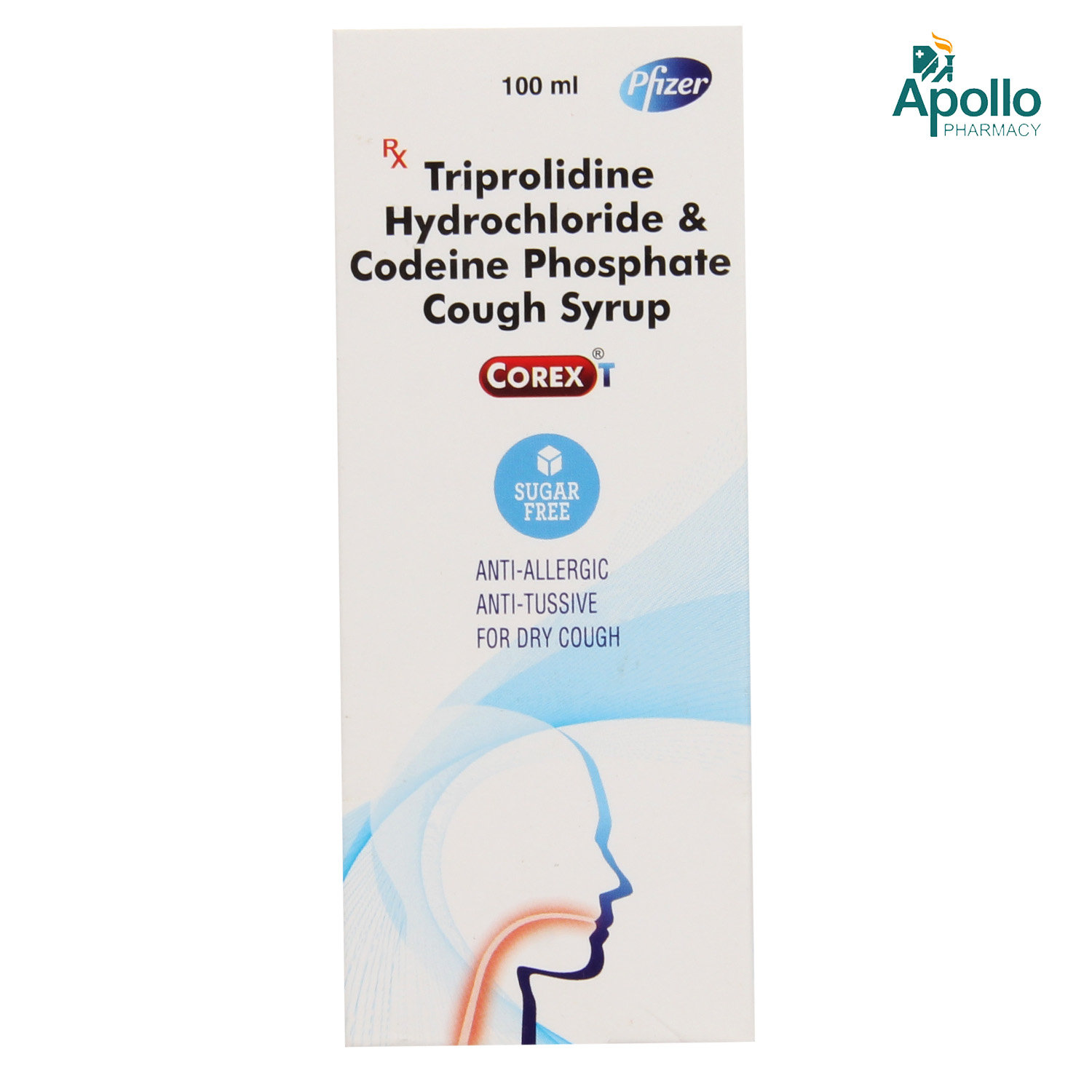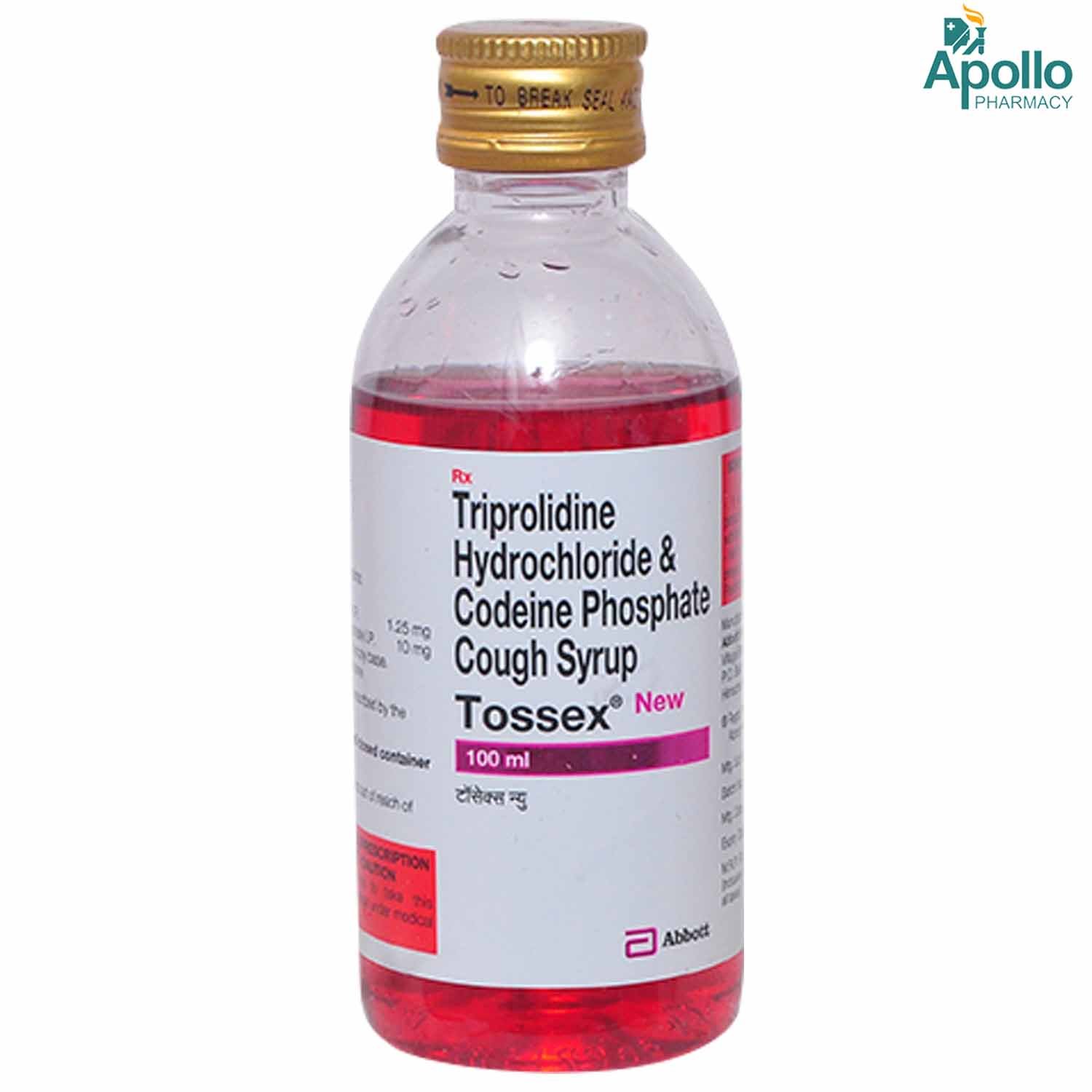Lecof-C Syrup

MRP ₹130
(Inclusive of all Taxes)
₹19.5 Cashback (15%)
know your delivery time
Provide Delivery Location
Composition :
Manufacturer/Marketer :
Consume Type :
Expires on or after :
Return Policy :

Secure Payment

Trusted by 8 Crore Indians

Genuine Products
Therapeutic Class
Country of origin
Manufacturer/Marketer address
Disclaimer
Alcohol
Safe if prescribed
Avoid consumption of alcohol with Lecof-C Syrup as it may increase the risk of drowsiness and other adverse effects.
Pregnancy
Consult your doctor
Lecof-C Syrup is not recommended for use during pregnancy. Lecof-C Syrup can have some harmful effects on the baby (fetus). Please consult your doctor. Your doctor will weigh the benefits and potential risks before prescribing it.
Breast Feeding
Consult your doctor
Lecof-C Syrup may be excreted in breast milk and cause harm to your infant. Therefore, Lecof-C Syrup should not be used while breastfeeding without a doctor’s advice.
Driving
Safe if prescribed
Lecof-C Syrup may cause dizziness, drowsiness, blurred vision, or impaired thinking in some people. Therefore, drive only if you are alert after taking Lecof-C Syrup .
Liver
Consult your doctor
Take Lecof-C Syrup with caution, especially if you have a history of liver diseases/conditions. The dose may be adjusted by your doctor if required.
Kidney
Consult your doctor
Take Lecof-C Syrup with caution, especially if you have a history of kidney diseases/conditions. The dose may be adjusted by your doctor as required.
Children
Safe if prescribed
Lecof-C Syrup is not recommended for children below 18 years of age.
Product Substitutes
About Lecof-C Syrup
Lecof-C Syrup belongs to a class of medication called ‘cough and cold preparations’ primarily used to treat dry cough associated with a common cold or upper respiratory allergies. Coughing (dry or productive) is the body’s way of clearing irritants (like allergens, mucus, or smoke) from airways and preventing infection. There are two types of coughs: Dry cough and chesty cough. A dry cough is tickly and doesn't produce any vicious or thick mucus, while a chesty cough (wet cough) means mucous or sputum is produced to help clear your airways.
Lecof-C Syrup is a combination of two drugs: Codeine (cough suppressant) and Triprolidine(antihistamine). Codeine belongs to the class of cough suppressants that blocks the μ-opioid receptor in the brain that produces cough, thereby decreasing the urge to cough. Triprolidine belongs to the class of antihistamines (anti-allergic drugs) that works by blocking the action of histamine, a substance responsible for causing allergic reactions.
Take Lecof-C Syrup as prescribed by your doctor. Take Lecof-C Syrup for as long as your doctor has prescribed it for you, depending on your medical condition. In some cases, you may experience certain side effects, including drowsiness, dry mouth, vomiting, blurred vision, constipation, dizziness, or tiredness. Most of these side effects of Lecof-C Syrup do not require medical attention and gradually resolve over time. However, if the side effects persist or worsen, please consult your doctor.
Please tell your doctor if you are allergic to Lecof-C Syrup or any other medicines. Drink plenty of fluids while taking Lecof-C Syrup to loosen mucus and protect yourself from being dehydrated or overheated during exercise. In hot weather, as Lecof-C Syrup contains Triprolidine, it decreases sweating and increases heatstroke risk. Do not take Lecof-C Syrup if you are pregnant or breastfeeding, as it may cause adverse effects on the baby. Lecof-C Syrup is not recommended for children below 18 years of age. Do not take Lecof-C Syrup if you have taken an MAO inhibitor (anti-depressant medication like Isocarboxazid, Phenelzine, Selegiline, and Tranylcypromine) in the last 14 days, as it may cause life-threatening drug interaction. Lecof-C Syrup is a habit-forming drug, and hence there is a risk of dependence on Lecof-C Syrup . So, before stopping Lecof-C Syrup , contact a doctor as it may cause withdrawal symptoms like anxiety, increased heart rate, tremors, or general unwell feelings.
Uses of Lecof-C Syrup
Medicinal Benefits Mweb
Key Benefits
Lecof-C Syrup is a combination of two drugs: Triprolidine and Codeine. Triprolidine belongs to the class of antihistamines (anti-allergic drugs) that works by blocking the action of histamine, a substance responsible for causing allergic reactions. It helps provide relief from allergy symptoms such as sneezing, running nose, watery eyes, itching, swelling, congestion, or stiffness. Codeine belongs to the class of narcotic cough suppressants that block the μ-opioid receptor in the brain that produces cough, thereby decreasing the urge to cough. Lecof-C Syrup is used to treat cough associated with a common cold or upper respiratory allergies.
Directions for Use
Side Effects of Lecof-C Syrup
- Dizziness/Drowsiness
- Mood changes
- Tiredness/weakness
- Nausea and Vomiting
- Increased heartbeat
- Loss of appetite
- Headache
- Blurred vision
- Dry mouth
- Constipation
- Urinary retention
- Coordination problems
Drug Warnings
Please tell your doctor if you are allergic to Lecof-C Syrup or any other medicines. Do not take Lecof-C Syrup for a prolonged time, Lecof-C Syrup contains codeine that may lead to mental or physical dependence on Lecof-C Syrup . Do not take Lecof-C Syrup if you are pregnant or breastfeeding, as it may cause adverse effects on the baby. Lecof-C Syrup is not recommended for children below 18 years of age. Do not use this medicine if you have used an MAO inhibitor in the past 14 days, as a dangerous drug interaction could occur. Lecof-C Syrup should be taken with extreme caution in patients who have a history of alcoholism or drug abuse. Drink plenty of fluids while taking Lecof-C Syrup to loosen mucus and protect yourself from being dehydrated or overheated during exercise. In hot weather, as Lecof-C Syrup contains Triprolidine, it decreases sweating and increases heatstroke risk. If you have high blood pressure, fits, glaucoma, hyperthyroidism (overactive thyroid), chronic bronchitis, asthma, cough with mucus, cough caused by smoking, chronic bronchitis or emphysema (a lung condition causing shortness of breath), chronic obstructive pulmonary disease (COPD), blockage in stomach or intestines, kidney, liver, heart or urinary problems, inform your doctor before taking Lecof-C Syrup .
Drug-Drug Interactions Checker List
- FEXOFENADINE
- DEXTROMETHORPHAN
- DIPHENHYDRAMINE
- BROMPHENIRAMINE
- CETIRIZINE
- DULOXETINE
- SERTRALINE
- PAROXETINE
- CARBAMAZEPINE
- PHENYTOIN
- CLONAZEPAM
- NITRAZEPAM
- LORAZEPAM
- FLUVOXAMINE
- ALPRAZOLAM
- DIAZEPAM
- OXYCODONE
Habit Forming
Special Advise
- Do not take Lecof-C Syrup for a prolonged time as it may lead to mental or physical dependence on Lecof-C Syrup .
- To avoid getting addicted to this drug, take it in prescribed quantities and as directed by your doctor. Do not self-medicate.
- Lecof-C Syrup causes drowsiness. Avoid doing activities that require your complete focus and attention, like driving when on this drug.
- An abrupt stoppage of Lecof-C Syrup can lead to significant withdrawal symptoms. Always discuss with your doctor about decreasing the dosage before completely stopping its usage.
- Avoid consuming alcohol while on this medication, as it can lead to dangerous side effects.
- Lecof-C Syrup is unsafe for usage if you're pregnant or plan to get pregnant and breastfeed. Discuss with your doctor in such situations about changing/replacing the medicine with safer alternatives.
Diet & Lifestyle Advise
- Avoid dairy products such as milk as they may increase mucus production. Also, avoid processed or refined foods to have relief from cough. Instead, replace baked foods, fried foods, white bread, white pasta, French fries, sugary desserts, and chips with green leafy vegetables.
- Drink plenty of fluids to avoid dry throat while you cough and loosen mucus.
- Avoid citrus fruits as they may worsen the cough. Eat fruits rich in water content, such as pears, watermelon, peaches, and pineapples.
All Substitutes & Brand Comparisons
RX
Out of StockNot for online saleCodistar-T Syrup 100 ml
Mankind Pharma Pvt Ltd
₹119
(₹1.07/ 1ml)
8% CHEAPERRX
Not for online saleC-Kof Cough Syrup 100 ml
Dwd Pharmaceuticals Ltd
₹118
(₹1.18/ 1ml)
RX
Out of StockNot for online saleComtus-T Syrup 100 ml
Comed Chemicals Ltd
₹126.5
(₹1.27/ 1ml)
8% COSTLIER

Have a query?
Buy best Respiratory System products by
Cipla Ltd
Lupin Ltd
Glenmark Pharmaceuticals Ltd
Sun Pharmaceutical Industries Ltd
Alkem Laboratories Ltd
Macleods Pharmaceuticals Ltd
Mankind Pharma Pvt Ltd
Zydus Healthcare Ltd
Leeford Healthcare Ltd
Dr Reddy's Laboratories Ltd
Zydus Cadila
Abbott India Ltd
Intas Pharmaceuticals Ltd
Alembic Pharmaceuticals Ltd
German Remedies Ltd
Centaur Pharmaceuticals Pvt Ltd
Ipca Laboratories Ltd
Aristo Pharmaceuticals Pvt Ltd
Pristine Pearl Pharma Pvt Ltd
Wockhardt Ltd
GlaxoSmithKline Pharmaceuticals Ltd
Zuventus Healthcare Ltd
Koye Pharmaceuticals Pvt Ltd
Micro Labs Ltd
Blue Cross Laboratories Pvt Ltd
Medishri Healthcare Pvt Ltd
Med Manor Organics Pvt Ltd
Indiabulls Pharmaceuticals Pvt Ltd
Adonis Laboratories Pvt Ltd
FDC Ltd
Fourrts India Laboratories Pvt Ltd
Tablets India Ltd
J B Chemicals & Pharmaceuticals Ltd
Shreya Life Sciences Pvt Ltd
Divine Savior Pvt Ltd
Indoco Remedies Ltd
Seagull Pharmaceutical Pvt Ltd
Yash Pharma Laboratories Pvt Ltd
Torque Pharmaceuticals Pvt Ltd
Uniza Healthcare Llp
Wings Pharmacuticals Pvt Ltd
Biological E Ltd
Corona Remedies Pvt Ltd
Icarus Health Care Pvt Ltd
Steris Healthcare
Apex Laboratories Pvt Ltd
Geno Pharmaceuticals Pvt Ltd
Navil Laboratories Pvt Ltd
Precept Pharma
Aar Ess Remedies Pvt Ltd
La Renon Healthcare Pvt Ltd
Torrent Pharmaceuticals Ltd
Astra Zeneca Pharma India Ltd
Biochem Pharmaceutical Industries Ltd
Comed Chemicals Ltd
Entod Pharmaceuticals Ltd
Franco Indian Pharmaceuticals Pvt Ltd
Healthgate Pvt Ltd
Intra Life Pvt Ltd
Megma Healthcare Pvt Ltd
Pfizer Ltd
RPG Life Sciences Ltd
Unipark Biotech Pvt Ltd
Votary Laboratories (India) Ltd
Wanbury Ltd
Brinton Pharmaceuticals Ltd
Dolvis Bio Pharma Pvt Ltd
Eisen Pharmaceutical Co Pvt Ltd
Group Pharmaceuticals Ltd
Knoll Pharmaceuticals Ltd
Morepen Laboratories Ltd
Panacea Biotec Ltd
Prevego Healthcare & Research Pvt Ltd
Rnd Laboratories Pvt Ltd
Sanatra Healthcare Ltd
Skn Organics Pvt Ltd
Stedman Pharmaceuticals Pvt Ltd
Thuyam Life Pvt Ltd
Timon Pharmaceuticals Pvt Ltd
Aglowmed Pharmaceuticals Ltd
Ajanta Pharma Ltd
Alniche Life Sciences Pvt Ltd
Bio Warriors Pharmaceucticals Pvt Ltd
Biochemix Health Care Pvt Ltd
Cadila Healthcare Ltd
Cadila Pharmaceuticals Ltd
Caplet India Pvt Ltd
Chemo Healthcare Pvt Ltd
Delcure Life Sciences Ltd
East West Pharma India Pvt Ltd
Elder Pharmaceuticals Ltd
Embiotic Laboratories (P) Ltd
Emcee Pharmaceuticals (P) Ltd
Foregen Healthcare Ltd
Hetero Healthcare Pvt Ltd
Incite Pharmaceuticals
Iva Healthcare Pvt Ltd
Kepler Healthcare Pvt Ltd
Kristal Pharmaceuticals
Lincoln Pharmaceuticals Ltd





